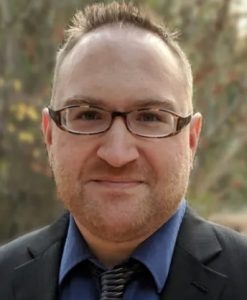April 2024 has been the month when the Kens of the Mojo Dojo Casa Churches came out in full force to flex their patriarchy power in preach-offs.
It started with Josh Howerton telling women to crown dishonorable men as their kings and telling women to stand, wear and do whatever their husbands tell them on their wedding night. Then Howerton claimed it was a joke and gave a joke of a plagiarized apology that promoted male power.
Amidst these controversies, Howerton attended the Stronger Men’s Conference, which features men smashing cars with tanks, shooting fake machine guns, smashing chairs over each other’s heads while dressed up in superhero costumes and confronting one another from the pulpit.
In the weeks since their epic preach-off, the controversy has continued as Mark Driscoll and John Lindell took their fight online to the point where women who work at Lindell’s church are reportedly receiving death threats over it.

Rick Pidcock
While much has been written about these men posturing themselves over women and one another, many who are criticizing these men have said they are acting like children.
As a stay-at-home father of five kids, I know how unbearable it may seem when kids are fighting with one another or trying to one-up the other. But it’s important for us to remember in critiquing patriarchal men that we must refrain from using metaphors that belittle children.
Jesus said, “Unless you are converted and become like children, you will not enter the kingdom of heaven. Whoever then humbles himself as this child, he is the greatest in the kingdom of heaven.”
According to Jesus, those who are positioning themselves as the greatest are not acting like children. Instead, they should convert. And in Jesus’ mind, conversion isn’t submitting to a sacralized power dynamic but is being humble enough to reject the hierarchy of greatness and to become like children.
“Acting like children is not the problem. But becoming like children is the solution.”
Thus, acting like children is not the problem. But becoming like children is the solution.
This means liberation from hierarchy can be learned from children. So to learn more about how children bring liberation from the Kens of Kendomland, I interviewed child liberationist theologian R.L. Stollar about his new book, The Kingdom of Children: A Liberation Theology.
Rick Pidcock: I love how you refer to Jesus as “God the Child.” How does child liberation theology help us experience a relationship with God the Child through our relationships with children?
R.L. Stollar: Liberation theology in general, and not just child liberation theology, argues that salvation is inherently contextual and relational. What this means is that we live out our salvation in our everyday lives by how we treat and relate to the people around us, especially marginalized people.

R.L. Stollar
Liberation theologians often point to the striking passage in the Christian Gospels, Matthew 25:31-46, where Jesus says he will one day separate people into two groups with different eternal destinations: sheep and goats. The sheep are those who take care of people in need whereas the goats are those who ignore people in need.
Most interestingly, Jesus says those who take care of people in need are taking care of Jesus, too, even if they do not know it: “The truth is, anything you did for any of my people here, you also did for me.”
Jesus said this because he knew he would not always be here with us in the flesh. But we do have images of Jesus — images of God — all around us in our fellow human beings, most especially children, whom Jesus highlights as especially important for us to prioritize and protect.
So how we treat and relate to children (as well as other marginalized groups) is a barometer of how we would treat and relate to Jesus. By either protecting or abusing children, we are either protecting or abusing Jesus as well.
RP: In your introduction, you quote Jonathan Edwards saying children are “young vipers — and are infinitely more hateful than vipers.” Later, you mention Voddie Baucham saying children are “vipers in diapers.” Paul Washer says when a baby cries, it has the desire to “slaughter you there where you are” and “walk across your bloody body out the door, without feeling an ounce of remorse.” How are these men so celebrated in conservative evangelicalism? What does it say about the humanity, deeply embodied childhood wounds, or the awareness of conservative evangelicals that these men are their theological heroes? And what might children have to teach conservative evangelicals that could heal them from their addiction to abusive theology?
“Adults are deeply and intimately invested in their power and privilege over children.”
RLS: These teachers are so celebrated by conservative evangelicalism — as well as beyond that subculture — because adults are deeply and intimately invested in their power and privilege over children. The adult-child relationship is really the last relationship where unchecked power and privilege of one group of people (adults) over another group of people (children) is seen as appropriate and moral.
In every other relationship involving potential authority and hierarchy (whether it’s a personal relationship like marriage or a business relationship between a boss and an employee or a political relationship involving a ruler and their subjects), we as a society have come to a point of at least acknowledging that unchecked power and privilege is never a good thing. This is why we legalized no-fault divorce and why we created labor unions and why we insist on checks and balances in government.
But when it comes to the adult-child relationship, we are still passionately insistent as a society that adults have the “parental rights” to do whatever they want to their children. It is perfectly legal for adults to hit children, to deny children lifesaving medical care, to deprive children of knowledge about their bodies and sexuality and so much more. And if you dare to suggest otherwise, if you dare to suggest that children might actually have their own rights and should not be considered parental property, you will face significant backlash and wrath from parents and other adults — and not just conservatives, but some progressives, too.
This is the context into which the Christian teachers you mention are speaking. They are speaking to people who believe adults not only have the right to dominate their children, but also a duty to do so. Because these teachers have such a low view of children (children are wild, evil animals in need of discipline and punishment), they believe it is necessary for adults to exert significant authority and control over children for the sake of both the children’s souls as well as civil society in general.
Without adult authority and control, the argument goes, children’s evil wills will naturally lead them to lives of immorality and criminality.
RP: How can we encourage people who have a top-down theology of grace and revelation to be willing to listen and learn from the underside-up theology of child liberation? Given the fact you say liberation theology is a theology of “self-determination” that is about “equipping and empowering groups of people to discover and speak about God on their own terms and with their own language,” is there any way we can overcome being dismissed over the objection that we’re simply making up God in theology like making up Santa Claus or the tooth fairy?
RLS: One really important message of liberation theology in general is that we are all deeply, personally invested in our theologies. What this means is that, when we do theological work, there is always a “we” doing that work.
“Theology is always done by people — and all people have biases and preferences.”
Even if I do theological work in a seemingly abstract way — for example, in a leather armchair while smoking a cigar in an air-conditioned room — there is still an “I” doing that theology. In other words, theology is always done by people — and all people have biases and preferences.
I say that to say: We can never overcome the objection that we might just be making up God in our own image because, in a very real sense, we are. When we do theology, there is a “we” doing it. By “we,” I mean us humans living in a specific geographical location during a specific time period with specific philosophical and religious assumptions about how life works.
Even when the apostles allegedly wrote the contents of the Christian Testament, it was the apostles — humans living in a specific context and amidst specific human relationships — who wrote them, not God. The Christian Testament thus reflects the biases and personalities of those men, not just a pure, abstract distillation of God’s ideas.
If God wanted to give us a pure, abstract distillation of divine ideas, God could have. But God gave us the Bible instead.
In short, I would run toward, not away from, the claim that human fingerprints will always be visible on human ideas. I am not afraid of such an admission. I would challenge any conservative and evangelical thinker who thinks they found a pure, abstract distillation of God’s ideas to prove they have accomplished the superhuman, almost Gnostic task of not being influenced by anything or anyone.
RP: While we want to quote parts of the Bible that humanize children, we can’t ignore the fact that the Bible occasionally talks about God committing or commanding the genocide of children. When the Bible is seen as authoritative and inerrant, this can be especially harmful to children’s self-identity, let alone for how it is used to justify violence against them. So how should we interpret the Bible as a text with a model for action when it is so culturally situated within ancient patriarchy? Wouldn’t it be better to find a different book that isn’t trapped in these dynamics? Do you ever feel like we’re trying too hard?
RLS: The short answer is yes, absolutely, I do sometimes think we’re trying too hard, that it might be better or easier to use a different book as the sacred basis of how we treat and interact with children.
As much as I still personally find hope and meaning in Jesus and the Bible, I totally get and understand that some people can only find sadness and pain there. I am not interested in convincing survivors of religious abuse that there’s a phoenix somewhere in the ashes of the religion they experienced. For me, finding that phoenix is healing. But I get it is not for everyone.
At the same time, Christianity is not going away any time soon. So as long as Christianity remains a significant element of our world, I think everyone — Christians and non-Christians alike — should be invested in promoting the healthier, more liberating versions of Christianity that have existed alongside the abusive and controlling traditions.
I also think it is really important to acknowledge that many — not all, but a significant portion — of the troubling passages in what Christians call the “Old Testament,” which is really the Jewish Scriptures, are troubling because of how conservative and evangelical Christians read those texts: in a flattened, literal way. But that is not how Jewish people usually read their sacred texts.
Jewish people have a very different relationship to those texts than Christians do. It is a dynamic, mutual relationship where challenging and questioning is not just allowed but encouraged.
Like, just as a quick example, take the story of Elisha siccing the bears on the 42 children in 2 Kings 2:23-25. To conservative and evangelical Christians, that passage is always read as if the children did something wrong. But Jewish people believe God actually punished Elisha for acting out of anger toward the children. So the conservative evangelical version of the story is a rather terrifying morality lesson for children, whereas the Jewish version of the story is the opposite: it is a warning about how adults harm children when they let their anger overwhelm them.
If more Christians read the Jewish Scriptures with the understanding that those Scriptures are first and foremost Jewish, not Christian, and try to resist the temptation to appropriate them and disregard how Jewish people read their own texts, we would be having a very different conversation.
RP: Many of us who have deconstructed the theology-driven abuse of our childhood come to different places regarding how we relate to Christian theology. Like you, I have chosen to continue interacting with Christian theology by exposing its harm and by provoking curiosity for ways it could heal. But we both have many friends who have left it completely, and some who feel triggered by any mention of it. What can we learn from children as agents of liberation or prophets to us that could help us love one another, despite the fact we respond to our common childhood wounds in different ways?
RLS: What we as adults with different ways of responding to our shared histories of religious trauma can learn from children is openness toward one another. But I do not think we need to “learn” openness so much as we need to relearn it. Because that openness is something children are born very gifted at, but that we lose our ability to be as open as we grow older.
“Openness is something children are born very gifted at, but that we lose our ability to be as open as we grow older.”
Before I expand on this, I should make a qualification: I do not personally think there is an “essence” to childhood. Children live very different lives depending on their physical, economic, relational and other contexts. However, if you forced me to pick one word that I think best captures the essence of childhood, I would go with “openness.” And by that, I mean “a willingness to be curious about and embrace life as it unfolds.”
So, a very Daoist perspective — and by “Daoist,” I mean the Chinese belief system called Daoism. The easiest and best way to understand Daoism is to imagine life as a river. Someone attune to the Dao, a Daoist master, would be someone who basically goes with the flow of the river, rather than trying to cut up stream or against the natural current.
Are children naturally Daoist masters? I could see someone making a convincing argument in that regard. Children, in my experience, have almost bottomless energy and interest in life (at least until or unless they encounter something traumatic, like child abuse or neglect). But apart from trauma, I feel like children have a curiosity and passion for life that adults often lack. In fact, the way adults lose that spark of openness toward the world and its experiences is a major theme of many children’s books where children do not want to grow up and many adult books about losing childhood innocence.
So, that openness — that spark of curiosity and love for learning about the world and experiencing all it has to offer — is something we can relearn from the children around us. And we can and should use that openness in our relationships with adult peers as well.
As we see our adult friends taking different paths of healing from or seeking justice regarding their religious trauma than we are taking, instead of taking the traditionally evangelical route of condemning them and their uniqueness, we can cast aside that spirit of fear and love the fact that humans are diverse. God, or Nature, made us that way. It is OK for us to have unique journeys to healing and justice.
Rick Pidcock is a 2004 graduate of Bob Jones University, with a bachelor of arts degree in Bible. He’s a freelance writer based in South Carolina and a former Clemons Fellow with BNG. He completed a master of arts degree in worship from Northern Seminary. He is a stay-at-home father of five children and produces music under the artist name Provoke Wonder. Follow his blog at www.rickpidcock.com.


